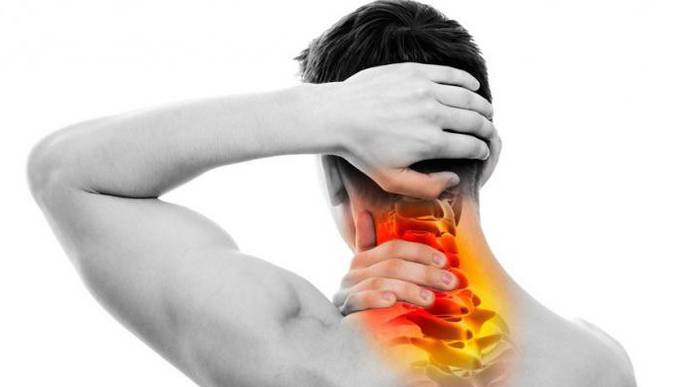Research shows that 50-70% of people with neck and back pain also have TMJ, a bad bite or some kind of poor jaw misalignment. Other symptoms to look for are teeth clenching, poor sleep and mouth breathing. When these symptoms are seen treatment from chiropractors, physical therapists and dentists are needed.

Symptoms of TMJ Problems
Temporomandibular joint disorder (TMJ) is a condition that affects the joints connecting the jawbone to the skull. It can cause a wide range of symptoms, including pain in the jaw, face, and neck, as well as headaches, earaches, and difficulty opening and closing the mouth. Most people with TMJ clench their teeth and do not sleep well at night. Some people with TMJ also experience pain in the back and shoulders.
The Link Between TMJ and Neck and Back Tension
Some of the worst TMJ symptoms are in the neck and back. The jaw, neck, and back are all connected by a network of muscles, tendons, and ligaments, so problems in one area can affect the others. For example, if you have TMJ and you clench your jaw or grind your teeth, it can place extra stress on the muscles in your neck and back, which can lead to pain and discomfort from head to toe. Muscles and bones are moving parts and they are all connected. The head bone is connected to the neck bone and so on…
What Causes TMJ?
TMJ is caused by inadequate space for the teeth and tongue to fit properly in the mouth. The lack of space results in obstructive airway conditions during sleep, mouth breathing and biomechanical issues in the jaws, head and neck during the day. Usually there is crowded and crooked teeth, bite problems, poor posture and facial profile. The lack of space is related to less than optimal growth and developmental in the head, neck, and airway.
How Teeth Clenching causes Jaw, Neck and Back Pain
TMJ pain is related to teeth clenching at night and sometimes during the day. TMJ is linked to sleep problems such as mouth breathing and obstructive sleep apnea. The common symptoms of TMJ include jaw pain, sore chewing muscles, stiffness in the neck and upper back, headaches, and difficulty sleeping. The root cause of all these issues is “not having enough space for the tongue to fit passively in the mouth. The tongue is a large muscle that relaxes in deep sleep, falls into the throat and block the airway. People will then, clench their teeth, roll over to the side, anything to be able to clear the tongue and be able to breathe.
People with TMJ have Forward Head Posture
During the daytime, people with TMJ will present with forward head posture to achieve a more favorable position for the airway. At first the posture will be more subtle, but with age it will become more pronounced. Forward head posture causes a change in the cervical, lumbar and sacral spine that is less favorable for overall muscle and skeletal performance and comfort.
TMJ Posture and Neck and Back Pain Video
There are other causes and factors in TMJ:
- Trauma: A blow to the jaw or head, or a whiplash injury, can cause damage to the temporomandibular joint.
- Arthritis: Osteoarthritis or rheumatoid arthritis can affect the temporomandibular joint and cause pain and inflammation.
- Dental issues: Problems with the teeth, such as malocclusion (misaligned bite), can place extra stress on the temporomandibular joint and cause pain.
- Stress: Stress can cause the muscles in the jaw, face, and neck to tense up, which can lead to pain and discomfort in the temporomandibular joint.
TMJ Symptoms are similar to some other conditions
Symptoms of TMJ can be similar to those of other conditions, such as fibromyalgia, chronic fatigue syndrome, and myofascial pain syndrome. Therefore, it is important to see a doctor or dentist for a proper diagnosis.
In addition, people with TMJ may also experience headaches, which can cause pain and discomfort in the neck and shoulders. This is because the muscles in the head, neck, and shoulders are all connected and work together, so problems in one area can affect the others.
Treatments for TMJ
The treatment of TMJ will depend on the cause of the condition. Some of the most common treatments include:
- Medications: Over-the-counter pain relievers, such as ibuprofen or naproxen, can help to relieve pain and inflammation.
- Physical therapy: exercises to help to improve the range of motion of the jaw and reduce muscle tension.
- Dental treatment: Dental treatment may include orthodontic treatment, occlusal splint therapy, and orthognathic surgery.
- Dental expanders such as DNA appliances and Homeoblock devices
- Surgery: In severe cases, surgery may be necessary to repair or replace the temporomandibular joint.
TMJ can cause pain and discomfort in the jaw, face, and neck, as well as headaches and earaches. It can also cause pain in the back and shoulders, as the jaw, neck, and back are all connected by a network of muscles, tendons, and ligaments, so problems in one area can affect the others. It is important to see a doctor or dentist for a proper diagnosis and treatment.
 703-712-1053
703-712-1053 